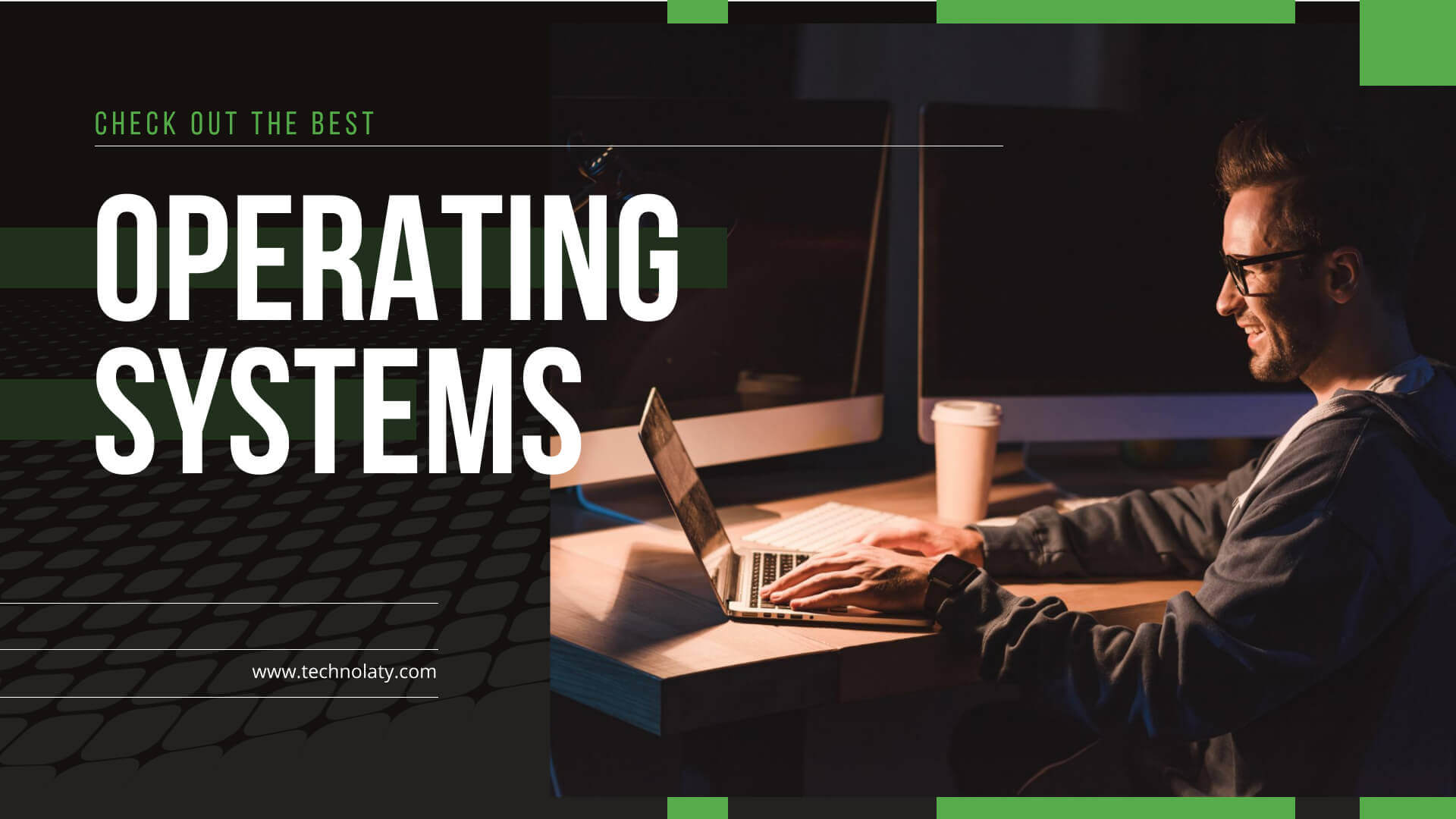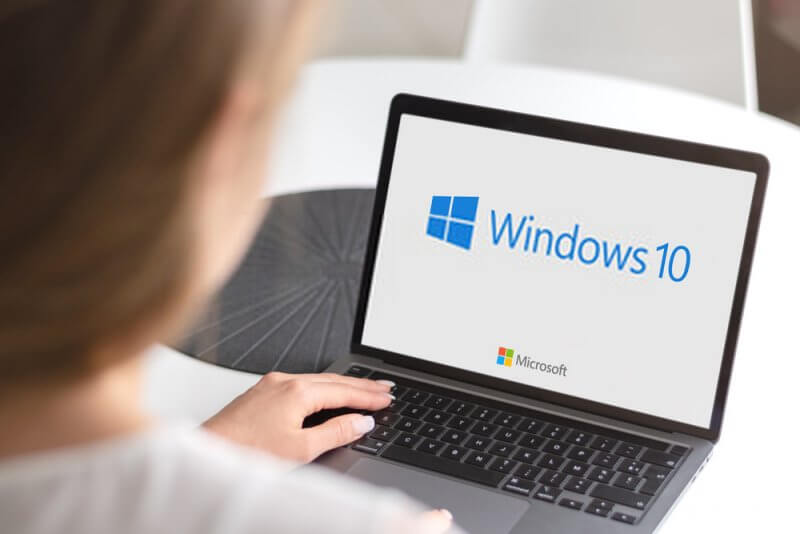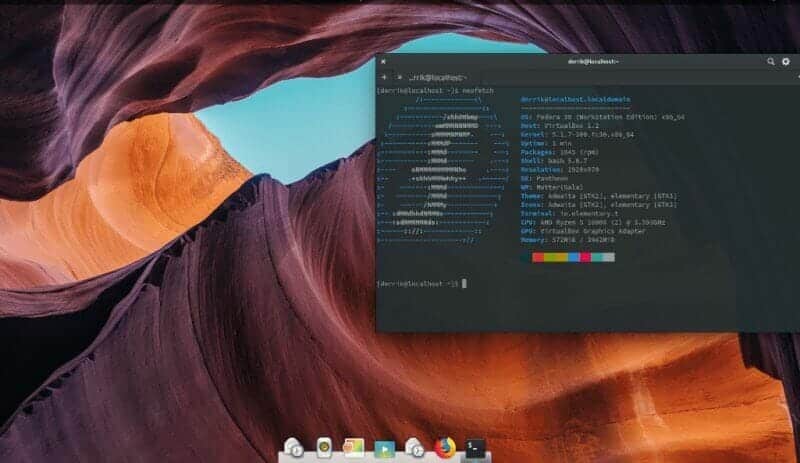Choosing an operating system (OS) significantly impacts your computing experience. Whether you’re a professional, a gamer, or a casual user, selecting the right OS ensures optimal performance and user satisfaction. This guide explores the best PC operating systems for PC in 2024, considering factors like functionality, user interface, and compatibility.
It is safe to say that computers have brought revolutionary changes in the world and the course of human civilization. Computers are more portable these days, unlike when they were giant machines and bulky boxes.

However, people talk so often about computers but completely negate the thought and don’t even talk about how these computers work and how they work the way they do. Of course, the topic here is operating system or OS.
Content Table
TOP 5 PC OPERATING SYSTEMS FOR 2024
Since the birth of computers, it has always been debatable which operating system is the best. In this article, we will uncover the compiled list according to the specs of the top five PC operating systems of 2024.
Windows 11

It is the most crucial and well-known operating system in the world. It has been fueling computer systems worldwide since Windows 95 was launched following the revolutionary Windows 7, and now it has come to Windows 11. The main specifications of this system are its user-friendliness and fastest operations.
According to the latest updates, the operating system is more secure and will keep your data safe from hackers and malware. It is easily navigable, gives you multiple options when you hit the start button, and allows the user to have two separate interfaces.
One is for a mouse and keyboard, and the other is for tablets and touch screens. Another feature of Windows is that it automatically shrinks the size of system files to free up storage.
Pros:
- Sleek Design: Windows 11 boasts a modern and user-friendly interface.
- Enhanced Gaming Features: DirectStorage and Auto HDR provide a superior gaming experience.
- Compatibility: Vast software and application support.
Cons:
- System Requirements: Requires relatively modern hardware.
- Transition Concerns: Users may face challenges adapting to the new interface.
Download Windows 11 from the Microsoft Official website.
Ubuntu

It is a Linux-based operating system that includes everything a person wants in an OS. Ubuntu is perfect for companies and educational institutes and for home usage. The main feature of it is that it is free to use and share.
Ubuntu includes a built-in firewall and a protective shield, and users get almost five years of security updates and patches after downloading the latest version. It is fully compatible with the latest computers, laptops, and touch-screen devices.
Another great thing about this operating system is that it has been fully translated into more than 40 languages. Ubuntu is almost like Windows, where you can save, copy and paste files easily.
Pros:
- Open Source: Customizable and open-source nature.
- Variety of Flavors: Choose from various distributions to suit your preferences.
- Resource Efficiency: Works well on older hardware.
Cons:
- Software Compatibility: Some proprietary software may lack Linux support.
- Learning Curve: Requires a learning curve for new users.
Download Ubuntu Desktop from the official website.
Mac OS

It is among the most notable devices of the century and works on all Apple devices. It is the most innovative operating system; the newer version always comes with the most definitive innovation.
MAC operating systems have been free of cost in recent years, and they get updated free of charge. Sadly, Apple users can’t try operating systems on their devices except MAC OS.
MAC OS’s main features include a dark mode that is easy on the eyes and gives your device a more dramatic look and feel. It contains a dynamic desktop that intelligently sorts the files based on kind, date, or tag.
Users can now download the handpicked applications from their devices using the MAC app store. Mac OS now comes with new iTunes, through which users can search songs by typing in new lyrics. One can stay anonymous on Mac OS to avoid tracking by websites.
Pros:
- Seamless Ecosystem: Integration with other Apple devices for a unified experience.
- Design Aesthetics: macOS is known for its clean and visually appealing design.
- Stability: Reliable and stable performance.
Cons:
- Hardware Limitations: Exclusive to Apple devices.
- Software Compatibility: Limited compared to Windows.
Download macOS from the official Apple website.
Fedora

It is another Linux-based system that makes things difficult for Ubuntu’s open-source features. It is reliable, easily used, and is generally a powerful OS that works on every PC and laptop.
Fedora is the number one choice for people who use their systems casually, caters to all students’ needs, is the best choice for hobbyists, and can handle the corporate workload.
The main feature of this operating system is its user interface, which assists the developers in focusing on their coding game. Its open-source toolbox contains different languages, multiple tools, and numerous utilities just waiting for a user’s command.
Summing all of the features up, it is a healthy choice for coders software programmers and is suitable for the corporate environment.
Download Fedora from the official website.
Solaris

Solaris was developed in the mid-90s by Sun Microsystems and is a UNIX-based OS. In 2010, it was given a new name, Oracle Solaris, after Oracle took over Sun Microsystems. It is more capable than any other Operating system and has the most advanced security features.
Other features include the time slider, ZFS, and D-trace. Solaris’ security features include process and user rights management, which allow the person to secure their critical data from hackers. It is advantageous for Java services and database management and is suitable for fast web searches. Due to its scalability, it offers high-end performances without any changes. It allows the users to opt to solve hundreds of problems related to hardware and software issues.
Download Solaris from the official website.
Choosing the Best OS for Your PC
1. Consider Your Usage
- Professional Tasks: Windows and macOS are often preferred for professional environments.
- Development and Customization: Linux is ideal for developers and users who enjoy customization.
2. Application Compatibility
- Windows: Widest range of software and application support.
- MacOS: It is suitable for creative professionals but may have software limitations.
- Linux: Great for open-source and development tools, with some limitations on proprietary software.
3. User Interface Preferences
- Windows: Known for its user-friendly interface.
- macOS: Offers a clean and aesthetically pleasing interface.
- Linux: Highly customizable but might have a steeper learning curve.
Conclusion
An operating system fuels computers and allows users to perform activities conveniently. Although numerous operating systems might do the job for you, the five operating systems listed above are the best of all. All you have to do is choose and choose the operating system that caters to your needs and desires and is comfortable for you to use.
If you want to use your computer for gaming, then a PC is by far the best option for you, but if you have an Apple device, then the choice is limited for you, as there is only one OS, i.e., Mac OS, available.
For large-scale businesses and massive networks, Linux and Unix-based operating systems must be the first and foremost choice. Whatever your needs are, choose your OS wisely by reading the above list, as this article will help you clear your confusion and help you make a wise decision.
Frequently Asked Questions (FAQs)
Q1: Can I upgrade my current operating system to Windows 11?
To upgrade to Windows 11, your PC must meet specific hardware requirements. Microsoft provides a PC Health Check tool to assess your system’s compatibility.
Q2: Is macOS Monterey available for all Mac devices?
macOS Monterey is compatible with various Mac devices, but not all older models may support all features. Check Apple’s official compatibility list for details.
Q3: Can I install Ubuntu alongside my existing operating system?
Ubuntu supports dual-boot installations, allowing you to run it alongside your current operating system. Follow the Ubuntu installation process, selecting the option to install alongside the existing OS.